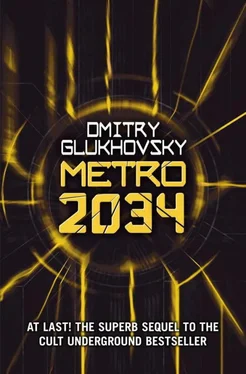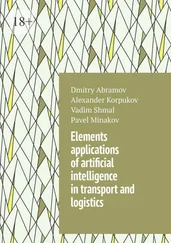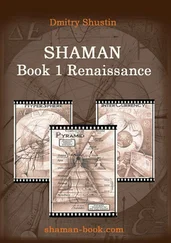‘It’s rain!’ she shouted. ‘It can do anything! We can start everything all over again!’
The black brigade moved outside the door and Homer went with it. Some of the aliens pushed hard on the door, trying to close off Tula and hold back the water. The slab of metal yielded and started moving slowly. The old man went dashing back to Sasha, left in the drowning station, but he was grabbed and flung out.
And then one of the black figures suddenly darted up to the narrowing gap, thrust his arm through it and shouted to the girl.
‘Come on! I need you!’
The water was already waist-deep: the light blonde head suddenly slipped under the surface and disappeared.
The black man jerked his arm back and the door closed.
But the door didn’t open. A tremor ran through the tunnel and the echo of an explosion crashed into the other side of the steel barrier and rebounded from it. Denis Mikhailovich pressed himself against the metal and listened. He wiped the dampness off his cheeks and glanced in surprise at the ceiling that was also exuding moisture.
‘Pull out!’ he ordered ‘It’s all over here.’
Homer sighed and turned the page. There wasn’t much free space left in the exercise book – only a couple of pages. What should he put in, what should he sacrifice? He held his palms out to the campfire, to warm his frozen fingers and comfort them.
The old man had asked to be posted to the southern watch. He worked better here, facing the tunnels, than among the heaps of dead newspapers at home at Sebastopol, no matter how well Elena guarded his peace and quiet.
The brigadier was sitting a little distance away from the others, right on the very boundary of light and darkness. Homer wondered why he had chosen Sebastopol. Evidently there was something about this station after all…
Hunter had never told the old man who it was that appeared to him that time at Polyanka, but Homer knew now that what he himself saw wasn’t a prophecy, but a warning.
The water receded from flooded Tula Station after a week and what remained was drained out with huge pumps brought in from the Circle. Homer volunteered to go there with the first scouts.
Almost three hundred bodies. Forgetting his revulsion, forgetting absolutely everything, he rummaged through those terrible bodies, searching for her, searching…
Afterwards he sat for a long time at the spot where he saw Sasha for the last time. The spot that he had made his dash for, too late to save her… or to die with her.
And the sick and the healthy shuffled past him in an endless procession – towards Sebastopol, to the healing tunnels of the Kakhovka Line. The musician hadn’t lied: radiation really did halt the disease. Perhaps he hadn’t lied at all? Perhaps there was a genuine Emerald City somewhere and it was just a matter of finding the door? Or perhaps he had reached that door, but he still didn’t deserve to have it opened for him? ‘And when the waters receded…’ had turned out to be too late.
But it wasn’t the Emerald City that was the Ark. The genuine Ark was the Metro itself. The final haven that gave shelter from the dark, stormy waters to Noah and Shem and Ham: the man of God, the indifferent man and the scoundrel. All the animals two by two. Everyone whose final scoreline hadn’t been decided yet, or whose bills still hadn’t been paid.
There were too many of them, and they definitely wouldn’t fit into this novel. The old man had almost no empty pages left in the exercise book. His book wasn’t an ark, it was a little paper boat, it couldn’t take all the people on board. But Homer thought that in his tentative lines he had come very close to getting something very important down on those pages. Not about all those people, but about man.
The memory of the departed didn’t disappear, thought Homer. Our whole world was woven out of other people’s deeds and thoughts, just as each of us was made up of countless little pieces of mosaic, inherited from thousands of ancestors. They had left a trace behind them, they had left a little particle of their soul for their descendants. You just had to look for it.
And his little boat, made out of paper, out of thoughts and memories, could sail the ocean of time endlessly, until someone else picked it up and examined it and realised that man had never changed, that he had remained true to himself, even after the death of the world. And the flames of the celestial fire that was once implanted in him had fluttered in the wind, but not gone out.
His personal score had been amended now.
Closing his eyes, Homer was back in a resplendently bright station, flooded with light. Thousands of people had gathered on the platform, wearing smart clothes that belonged to a time when he was still young, when no one ever thought of calling him Homer, or even addressing him politely as Nikolai Ivanovich, and now they had been joined by people from here, who had lived in the Metro. Neither group was surprised by the other. They all had something in common.
They were waiting for something, all gazing anxiously into the dark vaults of the long, long tunnel. The old man recognised those faces now. His wife and children were there, and his workfellows, and his schoolmates, and his neighbours, and his two best friends, and Ahmed, and his favourite movie actors. Everyone he still remembered was there.
And then the tunnel lit up and a Metro train slid soundlessly out of it into the station – with living windows blazing with light, with polished sides, with lubricated wheels. The driver’s cabin was empty: hanging inside it was a freshly ironed tunic and a white shirt. That’s my uniform, the old man thought. And my seat.
He climbed into the cabin. Opened the doors of the carriages. Tooted the whistle. The crowd flooded inside, occupying the seats. There were places for everyone: the passengers were smiling now, feeling reassured. The old man smiled too. Homer knew that when he wrote the final full stop in his book, this sparkling train, full of happy people, would set off from Sebastopol straight into eternity.
The old man was suddenly jerked out of his magical vision by an inhuman groan somewhere very close. Homer shuddered and grabbed his automatic.
It was Hunter groaning. The old man half-stood, about to go over and check on the brigadier, but then he groaned again… On a slightly higher note… Then again… this time slightly lower…
Homer listened, unable to believe his ears, and shivered.
Hoarsely and clumsily, the brigadier was trying to pick out a melody. When he missed a note, he went back and repeated it stubbornly, trying to get it right. He was tracing out the melody softly. Like a lullaby.
It was the same melody that Leonid had never given a title to.
Homer never did find Sasha’s body at Tula.
What else?
Also By Dmitry Glukhovsky from Gollancz:
Metro 2033
BRINGING NEWS FROM OUR WORLDS TO YOURS…
Want your news daily?
The Gollancz blog has instant updates on the hottest SF and Fantasy books.
Prefer your updates monthly?
Sign up for our in-depth newsletter.
www.gollancz.co.uk
Follow us  @gollancz
@gollancz
Find us  facebook.com/GollanczPublishing
facebook.com/GollanczPublishing
Classic SF as you’ve never read it before.
Visit the SF Gateway to find out more!
www.sfgateway.com
A Gollancz eBook
Original text copyright © Dmitry Glukhovsky 2009
English translation copyright © Andrew Bromfield 2013
Читать дальше

 @gollancz
@gollancz facebook.com/GollanczPublishing
facebook.com/GollanczPublishing









